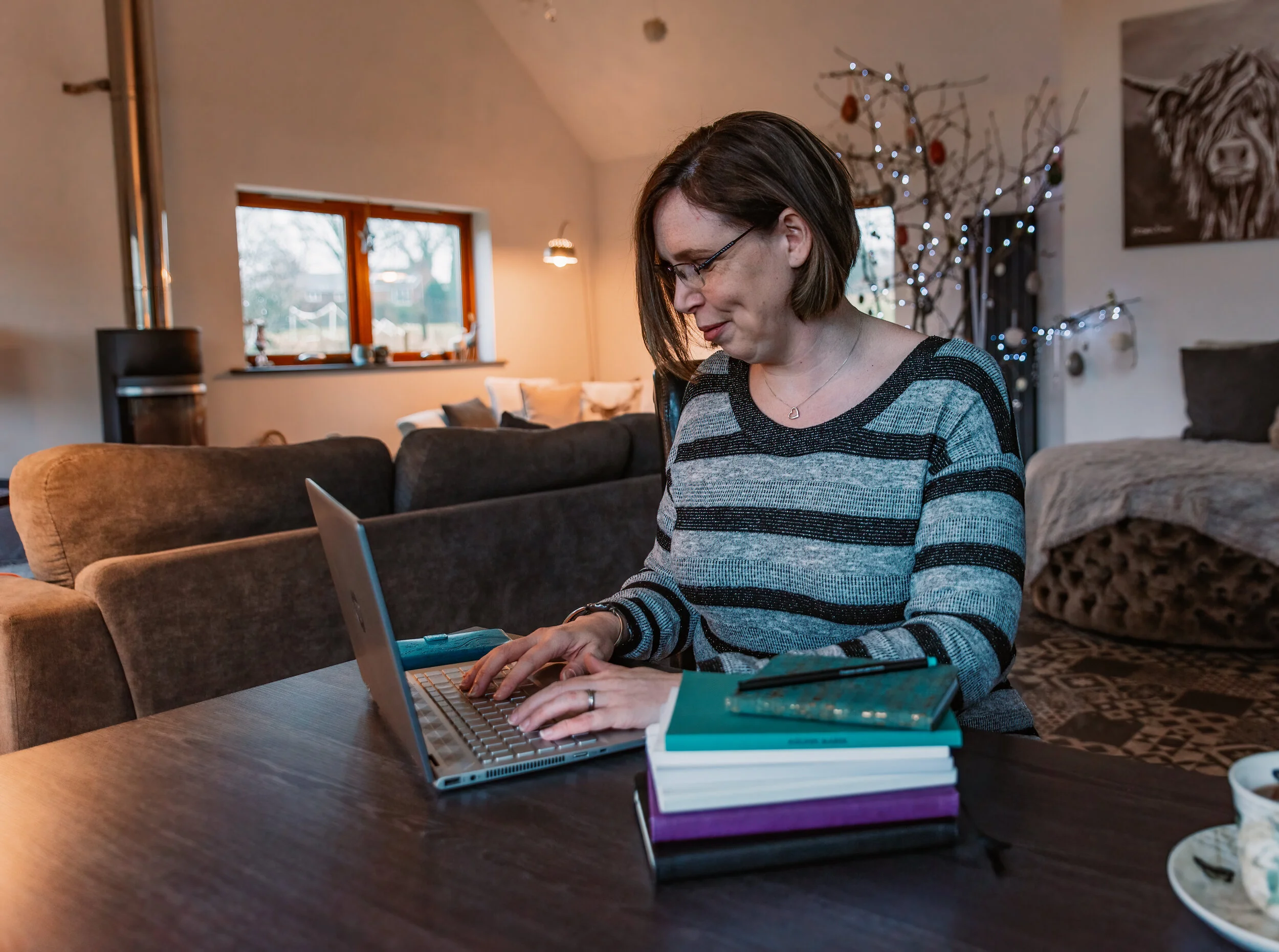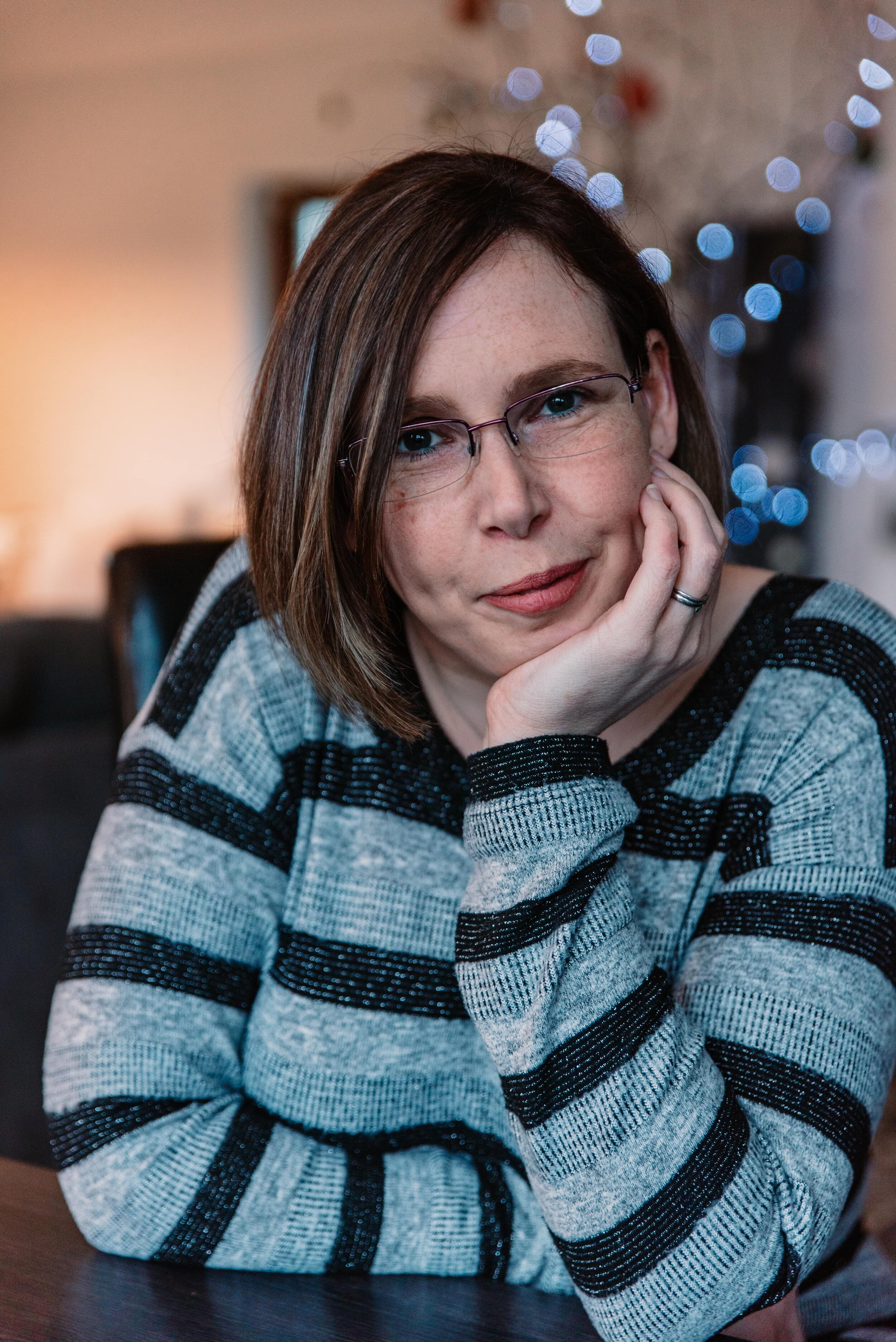
Taking Care Of Your Mental Health In Autumn
The "big coat" is out, the boots are on, the electric blanket is warming my bed! Personally, I love autumn - snuggly blankets and hot chocolates!
But it can be easy to slip into low mood and depression in the "ber" months, as the nights draw in and we're battered by wind and rain.
So I've written a blog with my top tips for looking after your mental health this autumn.
Autumn can often seem to creep up on us. One day we’re enjoying the summer warmth, enjoying ice cream or fish and chips at the beach, and the next day the "big coat" is out, the boots are on, and for me, the electric blanket is warming my bed! Personally, I love autumn, for its beautiful colours, excuse to snuggle under cosy blankets, wear chunky jumpers and indulge in hot chocolates. And who can resist the lure of jumping in a leaf pile in your wellies?!
“Autumn...the year’s last, loveliest smile.”
But it can be easy to slip into low mood and depression in the "ber" months, as the nights draw in and we're battered by wind and rain. The seasonal change in sunlight and temperature can result in a drop in serotonin, impact on our circadian rhythm and disrupt our melatonin production. All of these can impact on our mental health. So here are my top tips for looking after your mental health in autumn.
Keep active
When it's a bit chilly and dark, we often feel like curling up, keeping warm and staying in, but it's important to keep your body moving. Keeping moving, and exercising, can be crucial to beating the low mood that can accompany autumn, as the light starts to fade and the temperature drops. Getting outdoors if you can is good for boosting your vitamin D (helpful for your mood, immune system, bone health etc), but indoor exercise is beneficial too, as it releases endorphins (feel good hormones), keeps you physically healthy and helps keep you warmer.
Get outside
Try and get outside in the fresh air (if you can find some sunshine, even better!) Taking a short walk on your lunch break, or just stepping outside for a few moments can make a big difference to your mood, especially if you are working inside all day. The change of air, environment, and exercise all help keep you mentally healthy. Autumn can offer some inspiring sunsets, if you venture out for a walk at the end of the day.
Perhaps go for a sensory walk, noticing what you can hear, smell, see, etc. Autumn is such a sensory-rich season: the crunch of leaves underfoot, the beautiful orange and red leaves.
Eat well
Eating fruit and vegetables helps to boost your mental health, along with foods rich in omega-3 fatty acids. There are a variety of seasonal fruit and veg in autumn: carrots, pumpkins, blackberries, watercress. Eating seasonally means that food is often cheaper and at its best, as well as being better for the environment and often supporting local economy (which all makes us feel good!) If you are lacking motivation for cooking, using a slowcooker or batch cooking can be a good solution. Having a warm dinner waiting for you when you get home can really lift your spirits on a cold, wet night.
Cinnamon is one of my favourite autumnal flavours and it has so many benefits for our mental and physical health. It has anti-inflammatory properties, is loaded with antioxidants, has been linked to a reduction in heart disease and can be beneficial in alleviating digestive symptoms. Whilst more research is needed, there is some evidence to suggest that smelling cinnamon can help with cognitive functions and improving memory. Its warming and stimulating properties are helpful for those feeling low and lethargic.
Make contact
Many of us are aware of the impact of isolation on our mental health (especially in light of the recent pandemic). Though it can be tempting to curl up in the warmth at home, feelings of loneliness and disconnection can creep in. Consider planning a few meet ups and putting them on your calendar: having things to look forward to can lift your mood, and having pre-planned events helps keep you motivated and engaged, especially when you perhaps don’t have the energy for spontaneity. And if a physical meet up feels too much, perhaps having a good old fashioned phone call might feel more beneficial.
Be proactive
If you know that the autumn and winter months can trigger low mood, anxiety or depression for you, especially if you suffer with Seasonal Affective Disorder, take action and be proactive. Practicing mindfulness is a way to help you stay present and focused. Focus on the things you can do to stay healthy in mind, body and spirit.
It’s ok to say no to invitations, if you feel overwhelmed by social activities (more indoor gatherings start to be planned in these months, which can feel uncomfortable for some people, especially following the Covid-19 restrictions). Think about the events or people that mean the most to you, and prioritise those.
Think about how you can boost your immune system, ensuring you get enough sleep, sunlight, exercise, eating a healthy diet, taking supplements, if necessary.
Embrace it
Autumn can have lots to offer in different cultures: Thanksgiving, Halloween, Bonfire Night, for example. There is conker-collecting, walks in the forest, harvest festivals, lantern trials, pumpkin-picking, bat-watching, making hedgehog bread, firework displays, kite-flying, just to name a few! Looking forward to the spring might help your mood: planting bulbs such as daffodils or tulips at this time of year will give you a wonderful display of colour in the spring.
Perhaps take some time to reflect on what autumn can offer you and embrace it.
Autumn reflection
Step outside and pause.
See the rich, autumnal colours.
Breathe in the earthy scents.
Listen to the leaves crunch beneath your feet.
Feel the breeze upon your cheek.
Pause.
Just be.
If you are struggling with your mental health, please do speak out: you could talk to your GP, a friend, family member or colleague, or book an appointment with a counsellor.
Aislinn Marek is a qualified person-centred counsellor, registered with the BACP. She has worked within the NHS, education and private practice for many years, and is passionate about supporting people with their mental health.
Taking Time Off Work ... Without Feeling Guilty
The last few months haven’t been easy. At the end of May 2021, I had to take some time off work: I had suddenly become unwell, and was unable to drive or see clients. I needed a break and I knew a week or two wasn’t going to be enough. I was already spinning a number of unpredictable plates, including having two primary school aged children (one about to transition to high school) and being self-employed, and this unexpected illness was one plate too many. I thought it was better to put some plates down, rather than let them all fall and smash! And so, after a talk with my clinical supervisor and family, I contacted my clients and let them know.
Fast forward to today and, fortunately, I am better and am back at work, now my children are back at school (picking up one plate at a time, rather than the whole lot in one go!)
The last few months haven’t been easy. At the end of May 2021, I had to take some time off work: I had suddenly become unwell, and was unable to drive or see clients. I needed a break and I knew a week or two wasn’t going to be enough. I was already spinning a number of unpredictable plates, including having two primary school aged children (one about to transition to high school) and being self-employed, and this unexpected illness was one plate too many. I thought it was better to put some plates down, rather than let them all fall and smash! And so, after a talk with my clinical supervisor and family, I contacted my clients and let them know.
Fast forward to today and, fortunately, I am better and am back at work, now my children are back at school (picking up one plate at a time, rather than the whole lot in one go!)
Putting Down the plates
Part of the reason for writing this is to say, “Hello, I’m back!” and share a little of what has been going on behind the scenes(and why my social media has been so quiet!) But the main reason is to say that we all have a number of plates we are spinning, and that it’s okay to put some of those plates down now and again. Whether that means asking for help with childcare, cleaning, shopping, reducing hours or taking some time off work; you’re allowed to ask for help. None of us is super-human (sorry to break to that to you!)
For many of us, however, taking time off work feels impossible: we feel too guilty, we have people depending on us, right? The “what-ifs” seem endless. What if I fall too far behind with my work? What if people think I’m faking? What if my colleagues / employers / clients no longer value me? What about money? What if I find I just can’t face going back? And often, our work is such an integral part of who we are, that if we stop work for a while, we can feel like we are losing part of ourselves.
It’s important for us to remember that we are human beings, not robots. We charge our mobile phones, laptops, tablets; we put fuel in our cars; we take care of the things that help us do our jobs. But how much do we take care of ourselves? And are we able to see our own needs as being important?
Prevention is a good medicine
Ideally, we can take a proactive attitude to preventing illness (both mental and physical). We can look after ourselves using such tools as nutrition, aromatherapy, yoga and exercise. We can get organised, boost our confidence and manage our stress levels. We can create a healthy work/life balance (yes, such a thing can exist!). We can engage in counselling to help us feel more self-aware or balanced, or work through tricky situations, thoughts or feelings. We can have a practice of checking in with what’s going on in our lives, recognising what we need, and taking action. Thus, we can keep the plates spinning.
Curve Balls
“Worryingly, over half (52.5%) of professionals said they feel too guilty to take time off when they’re genuinely ill.”
But sometimes, even with the best plans, programmes, routines, etc, life throws us a curve ball we can’t dodge, and we have to make the decision to take time off. When you recognise you are not well or need to take time off for whatever reason, it’s important to give yourself permission to do that: take time off and focus on what you need. Recognise your worth and make sure your needs are met. Pushing through illness or stress rarely serves anyone (you or your employer/company): we can become more unwell, more stressed, our performance can be impacted upon and it frequently creates more problems. How many of us drag ourselves in to work when we don’t feel 100%, and then make ourselves worse so we end up taking a week off instead of a day? If you force yourself to carry on, the likelihood is that you’re not going to be productive, it could be dangerous (depending on your role), and honestly, you’re not going to win a medal for carrying on at work when you’re not really able to (sorry to disappoint you!) Think about what you would say to a friend or relative in the same situation: you’d want them to take care of themselves, right? Try and acknowledge where you are at, and give yourself permission to take the time you need to get better, or to get things in order so that you can resume spinning that plate labelled “work”.
Make that call
Once you’ve made the decision to take time off (or it’s been made for you!), tell your employers as soon as possible, as prolonging it often adds to the feelings of stress and anxiety. And then … use your time well. You are taking time off work, so no emails, phone calls, or paperwork should be taking place. Equally, try not to get caught up in the domestic “to-do” list of laundry, housework, admin. Rest, sleep, hibernate under the duvet if that’s what you need. Go for a walk, read, sketch, watch TV, play a game, bake, garden. If you’re not contagious, see a friend. If you’re taking a long period of time off, it can be helpful to have a gentle routine, but ultimately do what you need to, to feel whole again, to feel healthy, happy, you. This is your time, so use it to re-charge.
Whether we take a single day off work, or a few weeks or months, the stress and impact on our mental health can be significant, if we don’t allow ourselves permission.
Beating yourself up and submerging yourself in a pool of guilt doesn’t do you any favours (and often prolongs your recovery time or absence from work).
Remember that you cannot do your best at work if you are not feeling your best or not able to work. Return to work when you are ready, not because you feel guilty!
The quick-read!
Reasons to take time off when you are ill:
You are worthy of being healthy, and deserve to take time off to get better.
That should be enough but, if you need more …
Continuing to work can potentially be dangerous for you and/or others;
Pushing yourself can make you more unwell, leading to a longer period of absence.
You are likely to be less productive;
Contain your illness, if contagious, rather than spread it to others.
What to do when you are off sick:
Take care of yourself, mentally and physically;
Rest and recharge;
Leave work at work!
Mental Health
One last thing: many people who are struggling with their mental health find it hard to take time off, because it’s not as easy to explain as a cold, flu or stomach bug, and people may feel there is a stigma around this. If you need to take some time off work, due to mental health problems, but you’re worried about how your employers might respond, Mind have some useful information about telling your employer and knowing your rights.
If you are struggling with your mental health, please do speak out: you could talk to your GP, a friend, family member or colleague, or book an appointment with a counsellor.
Aislinn Marek is a qualified person-centred counsellor, registered with the BACP. She has worked within the NHS, education and private practice for many years, and is passionate about supporting people with their mental health.
She is happy to be back at work!












